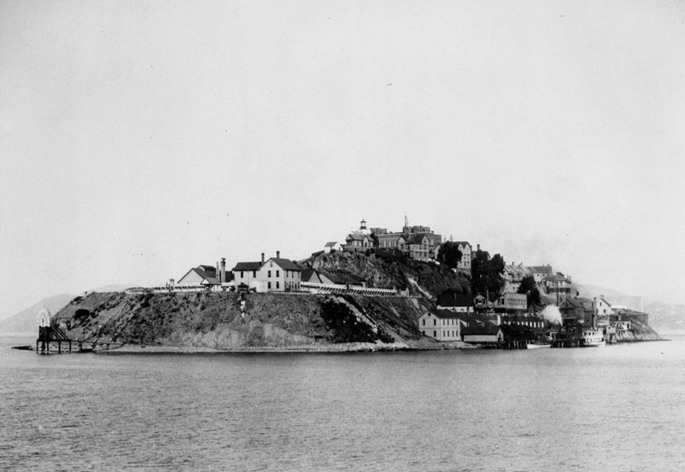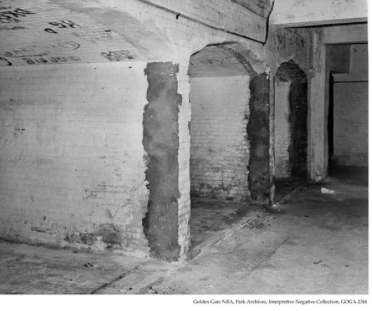
When Robert Simmons, an African American man from Savannah, Georgia, was brought to the foggy, windswept island of Alcatraz in the winter of 1918, he was thrown into the “hole,” a pitch-dark dungeon – below the main cell block –with slimy walls, crawling with rats. He was held there for 14 days.
His crime?
Simmons was a Conscientious Objector who opposed war and refused to fight on the battlefields of World War I.

When the war began in Europe in July, 1914, a great debate unfolded in the United States as to whether the US should enter the war. President Woodrow Wilson finally decided to declare war on April 6, 1917 – but the country was still divided. Many political, labor and religious organizations opposed the war and urged their members not to fight. In response, the government passed laws that criminalized dissent, forced conscription and jailed many who took anti-war positions.
There was great unrest in the African American community at the time of Wilson’s declaration of war. Jim Crow laws condemned Blacks to the poorest conditions in cities and rural areas alike. The US Supreme Court ruled that segregation was the law of the land. President Wilson showed “The Birth of a Nation” in the White House, a film the newly formed NAACP tried to ban because of its glorification of the Ku Klux Klan. The rise of the KKK and other white vigilante groups terrorized Black communities, burning churches and homes and lynching thousands.
While some Black leaders encouraged men to join the military to prove their patriotism, others urged them not to fight abroad when there was no democracy or justice for Blacks at home. As one African American newspaper wrote: “The Negro may be choosing being burnt by Tennessee, Georgia or Texas mobs or being shot by Germans in Belgium.”
Although 290,000 Blacks were conscripted, military units were completely segregated. Some trains carrying Black troops were fired on when they passed through southern towns.
Perhaps all of this was on Robert Simmons’ mind when he was conscripted and sent to fight in France. When he refused, declaring himself a Conscientious Objector, he was subjected to a military court martial and sentenced to prison.
At Alcatraz, then a military prison, Simmons was one of 30 COs – both political and religious. Simmons was one of a dozen “absolutists,” COs who refused to obey any military order – whether putting on a uniform or joining a work gang. Every time they refused to comply, their sentences were extended. When they were released from the dungeon, they were placed in “iron cages,” cells where they were forced to stand, chained to the cell door, unable to sit or even turn around, for eight hours a day.
Their protests brought outside investigators to Alcatraz from church groups and the ACLU, who documented the brutal conditions and complained to the federal government. The dungeons were not abandoned until the ACLU forced a high-level military inspection of the prison.
Though the Armistice was signed on November 11, 1918, the COs endured harsh imprisonment long after the fighting ended. Robert Simmons was not released from Alcatraz until February 27, 1920, more than a year after the end of the war.
Though Simmons may have felt completely isolated in the dungeons of Alcatraz during World War I, his legacy has endured.
During World War II, Bayard Rustin, James Farmer, and George Houser were Conscientious Objectors. A decade later they were leaders in the Civil Rights Movement, bravely facing violence at the hands of Southern law enforcement and white vigilantes to fight for racial equality.
Probably the most famous Conscientious Objector in our lifetime remains boxing champion Muhammad Ali, an African American Muslim who refused to fight in Vietnam. He stated, “My conscience won’t let me go shoot my brother, or some darker people, or some poor hungry people in the mud for big powerful America. And shoot them for what? They never lynched me, they didn’t put no dogs on me, they didn’t rob me of my nationality, rape and kill my mother and father… Just take me to jail.”
Rustin, Farmer, Houser, and Ali may not have known about Simmons’s stance decades earlier, but their courageous actions were cut from the same cloth.
On the centennial of the end of World War I, we should also remember those who stood up for the right to dissent – and paid a heavy price.


